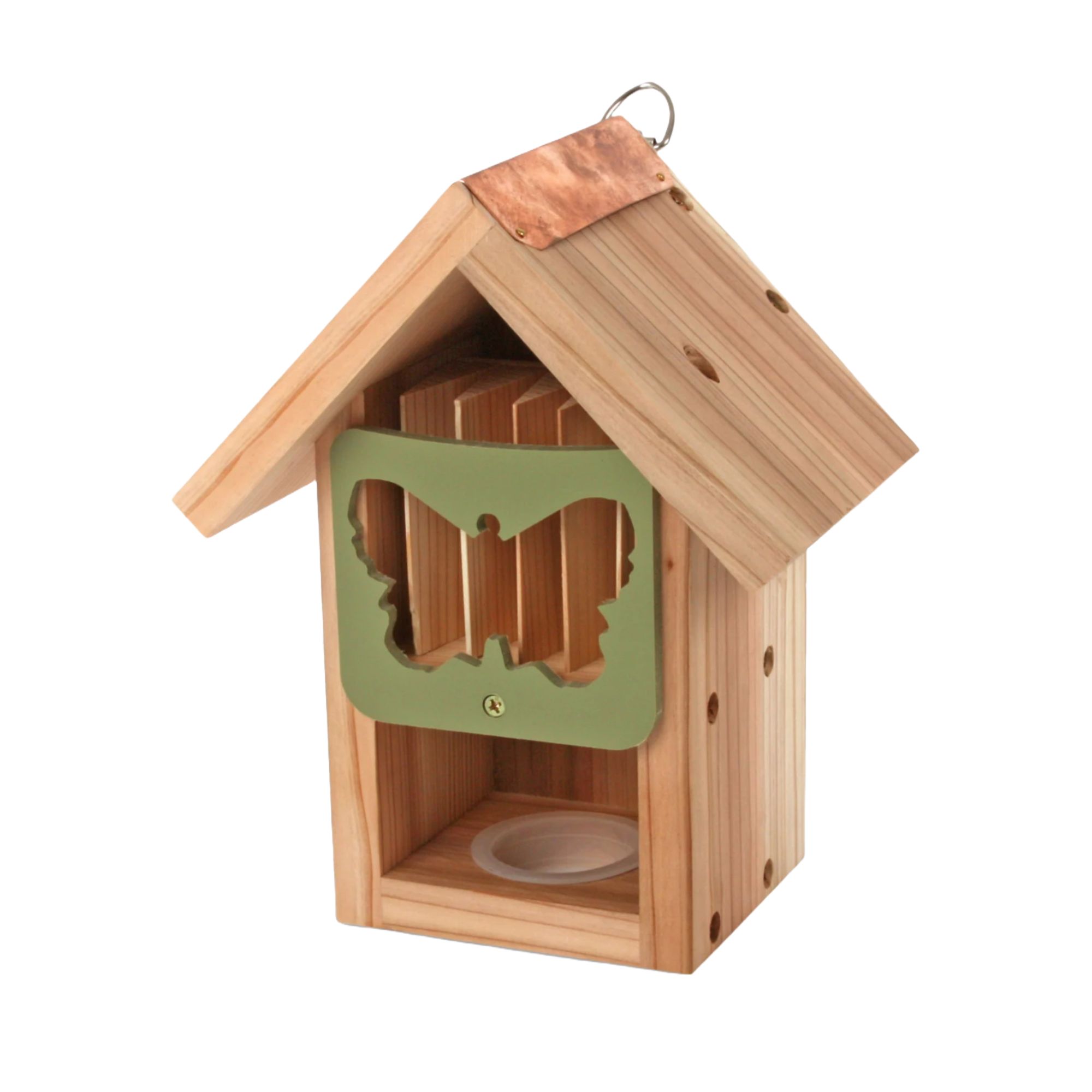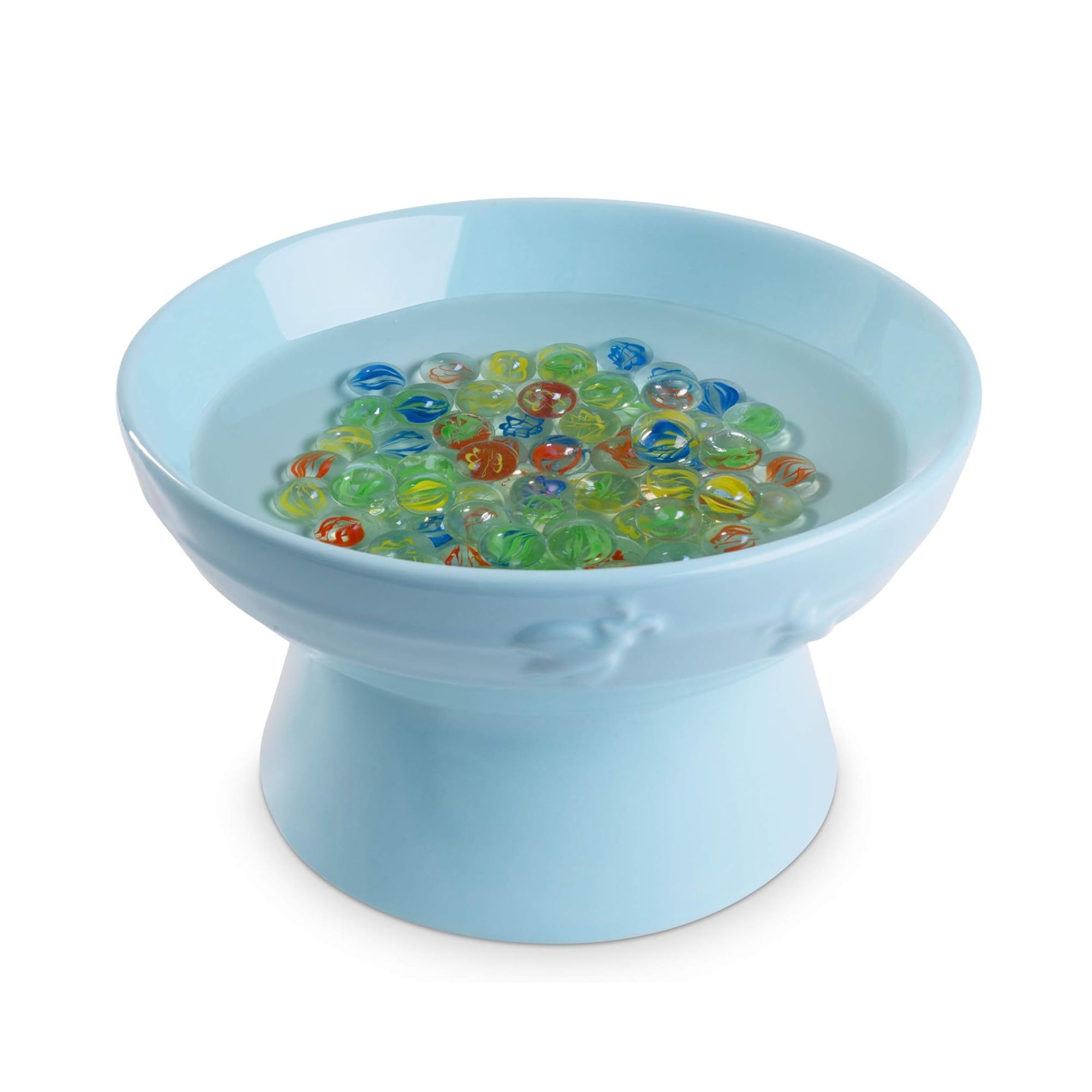5 easy ways to attract butterflies to your garden
Butterflies need our help, and who doesn’t love to see butterflies fluttering by in the garden?
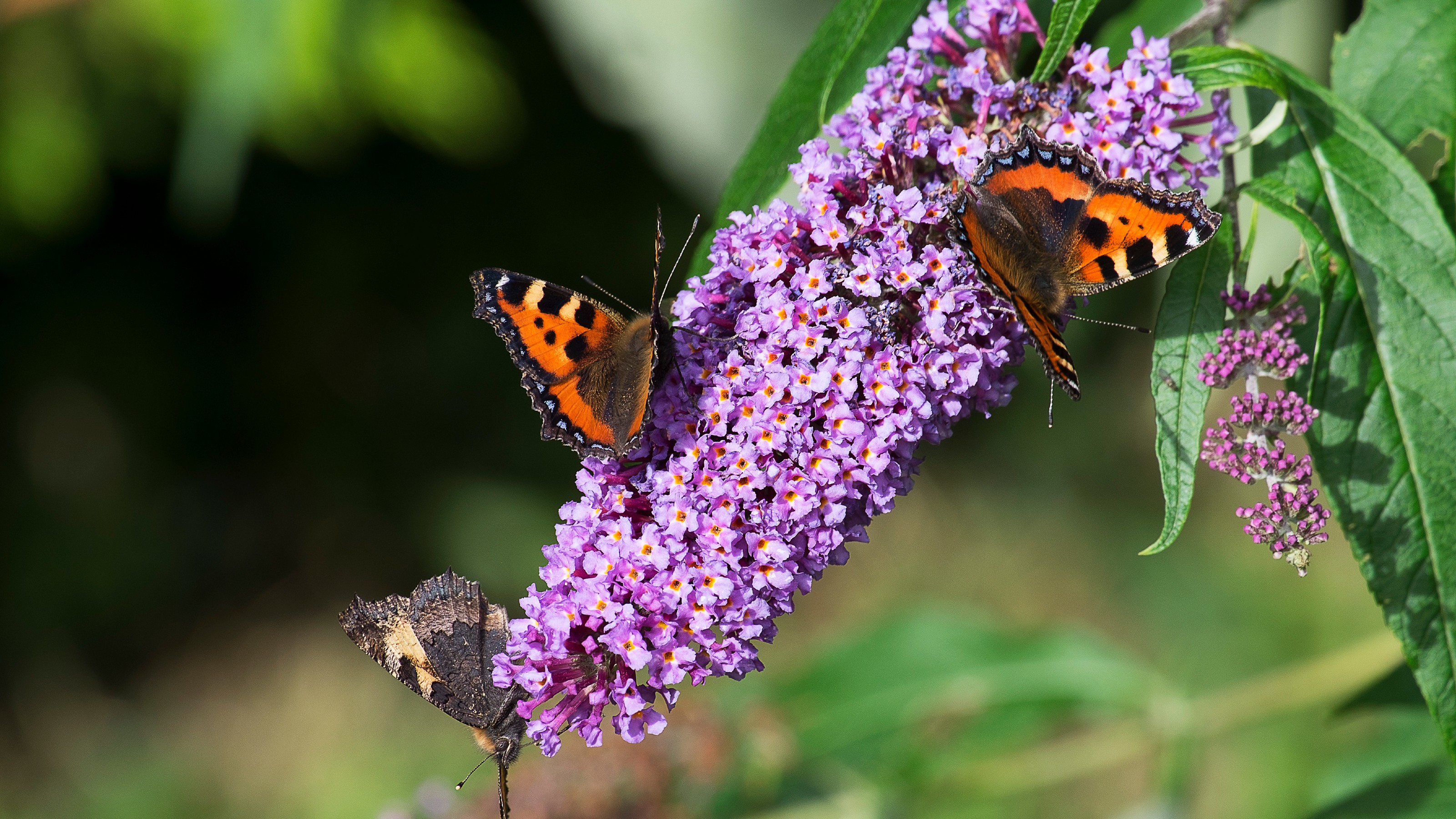

Butterflies are essential to our natural world and the ecosystems that keep our outside spaces ticking over. But have you noticed that there’s been a distinct lack of butterflies this year? Well, this is your chance to attract butterflies to your garden and rectify that problem.
Yes, there’s nothing better than seeing butterflies fluttering around your garden. And while there are many garden pests that you shouldn’t ignore, butterflies aren’t on that list. These winged insects are hugely beneficial to our gardens, and not just because they’re incredibly beautiful. Butterflies are in danger, though.
As Dr Richard Fox, Head of Science at Butterfly Conservation, told us, ‘80% of butterfly species in the UK have declined since the 1970s, with habitat loss one of the biggest drivers of this decline. That’s why it’s so important to create butterfly-friendly wild spaces in our outdoor areas.’ So, this is how you can attract butterflies to your garden.
1. Plant butterfly-friendly flowers
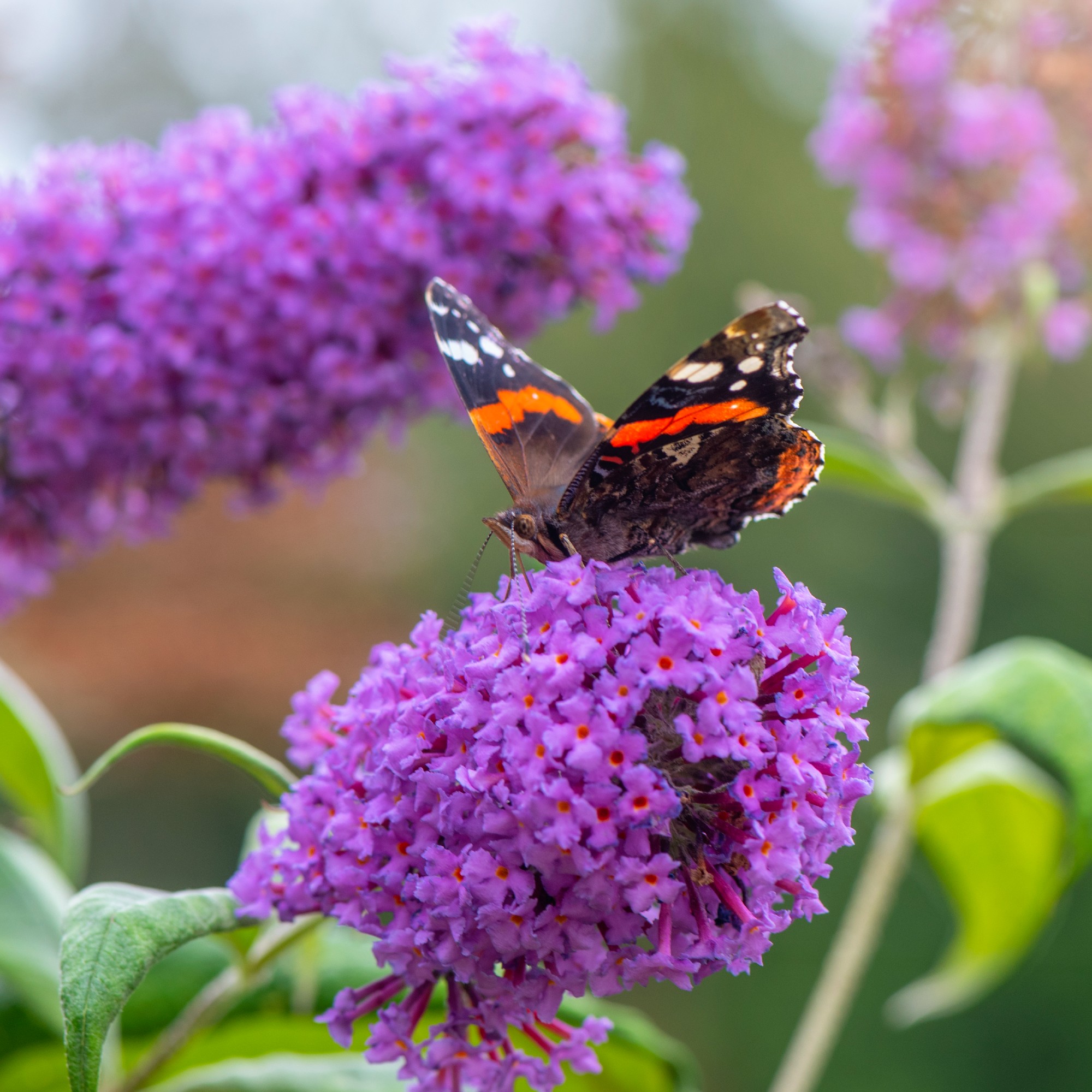
Like many other animals, butterflies flock to areas where there’s food and shelter on offer. And as butterflies feast on sugary nectar, adding plants to your garden borders and container garden is an easy way to attract butterflies.
Of course, any plants will do, but there are some that butterflies love more than most. The experts at The Woodland Trust explain, ‘Butterflies flock to flowers like bluebell, lavender, red campion, cornflower, primrose, bird's-foot-trefoil and clover.’
They add, ‘Buddleia is a real favourite of butterflies too, but we wouldn't recommend it as it is an invasive plant that spreads really quickly, often at the expense of other native plants.’
While you may assume that you can’t complete this step if you have a small garden, you’ll be happy to know that you can still attract butterflies - no matter the size of (or lack of) your outdoor space.
Sign up to our newsletter for style inspiration, real homes, project and garden advice and shopping know-how
‘This isn’t just for those with big gardens,’ says Dr Richard. ‘A few simple pots on a balcony or terrace, a window box, or even a wild patch in a community space all provide essential places for butterflies to call home.’
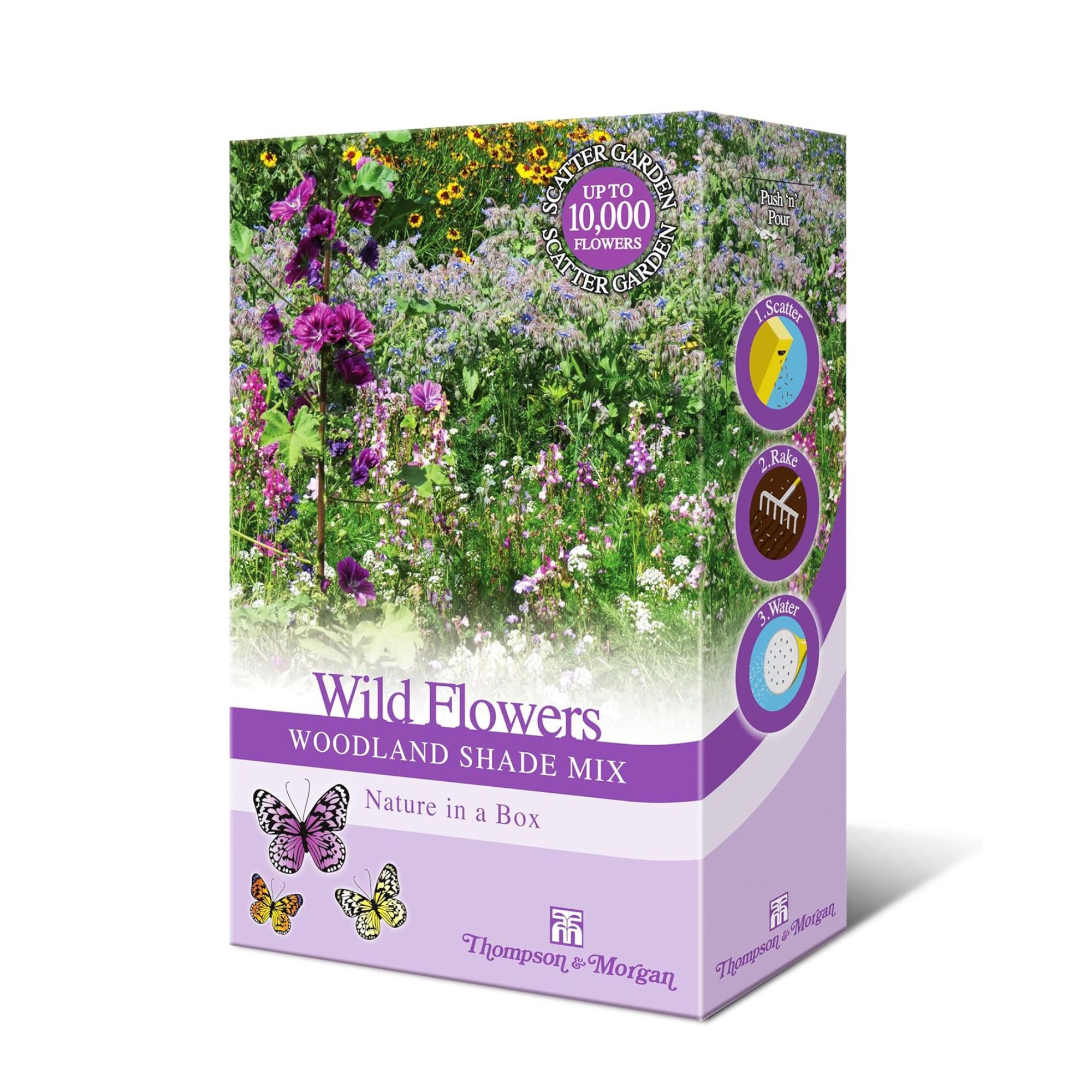
If you want to plant flowers that will attract butterflies to your garden, this wildflower mix has got you covered. Just make sure you know when to plant wildflower seeds.
2. Keep your grass long
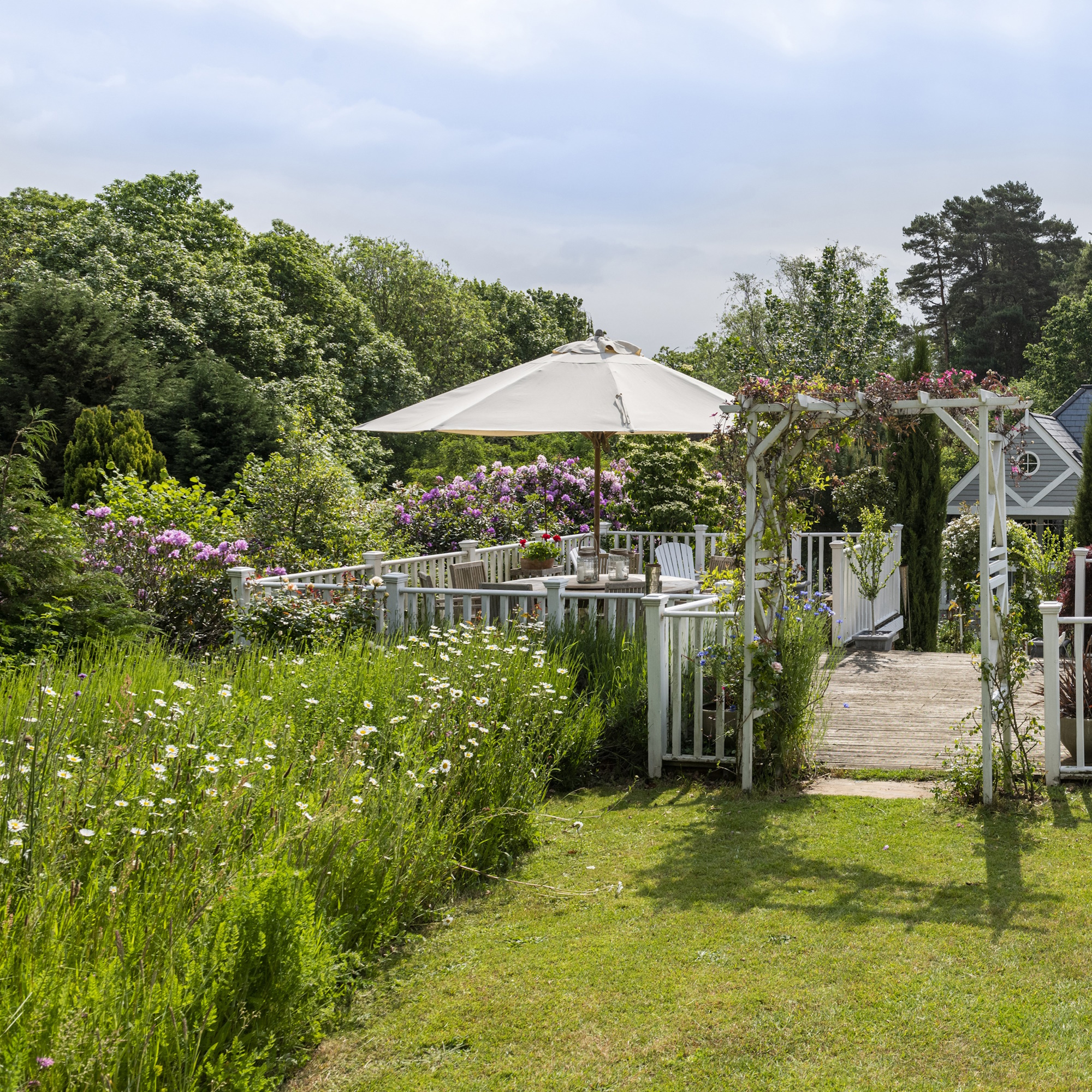
Although many people dream of luscious lawns with visible lawn lines, the reality is that these picture-perfect lawns rarely offer anything to the natural world around them. After all, they don’t offer shelter or a place for larvae to hide.
And while it’s certainly important to keep on top of your lawn mowing calendar to ensure it doesn’t take over your garden, you might want to keep the best lawn mower in the shed for a bit longer if you want to attract butterflies to your garden.
Dr Fox explains, ‘The simple act of creating wild spaces by allowing a patch of grass to grow long, or a border edge to go wild is free and easy to do, and can significantly boost butterfly numbers, especially in urban and agricultural settings where they are most under pressure.’
He adds, ‘The benefits of each individual wild space are small, but if thousands of people get involved, the boost to butterflies could be huge.’
Meadowscaping is one of the best ways to do this, but if you don’t want to stop mowing all of your lawn, you can choose to grow a mini meadow instead.
3. Build or buy them a home
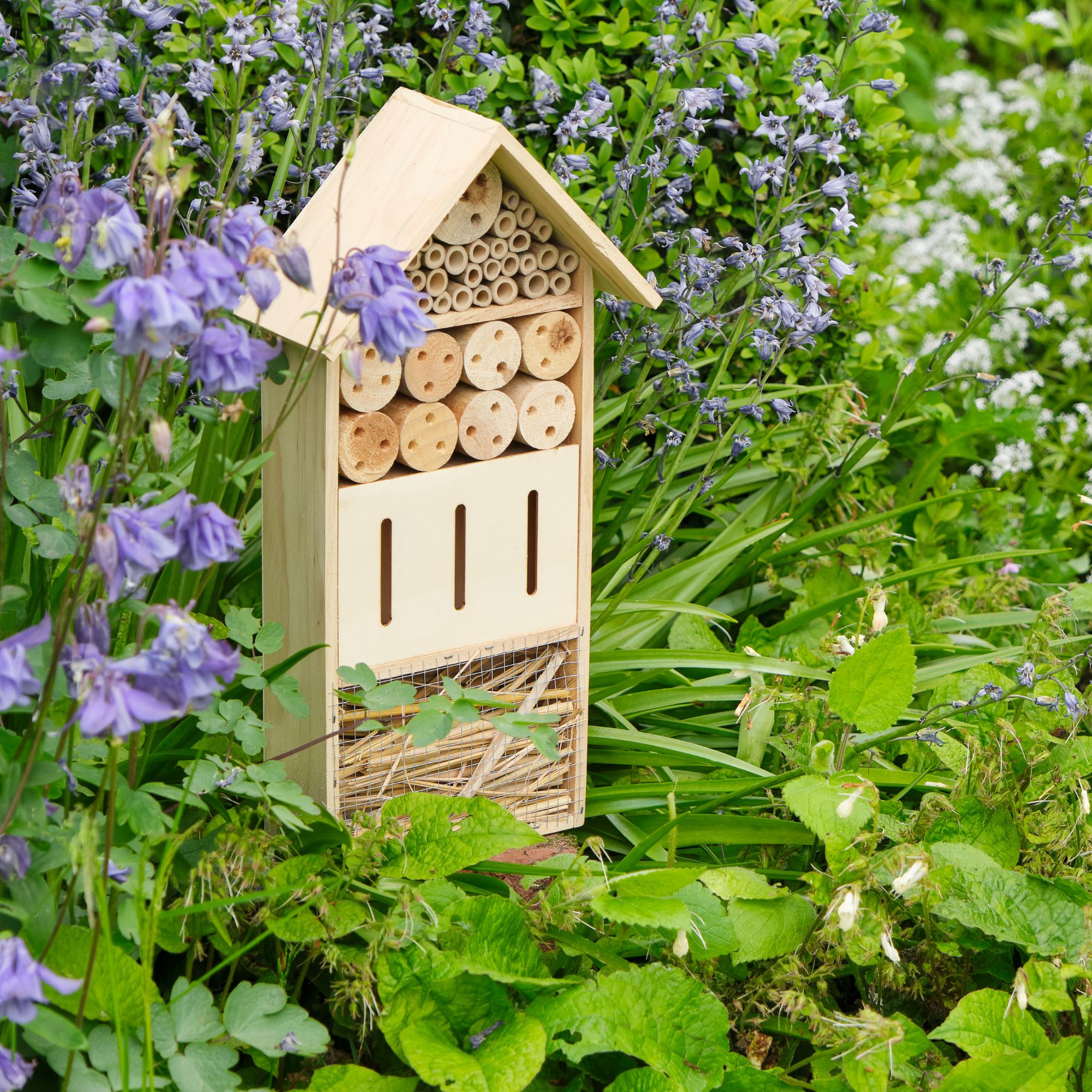
As habitat loss is one of the main reasons butterfly numbers are dwindling, offering them a home is also one of the best ways to attract butterflies to your garden. There are two ways to do this: buy a ready-made butterfly house or make your own.
These butterfly houses are extremely important, as, according to The Woodland Trust, ‘Butterflies will use the house to shelter from bad weather and predators, as well as for feeding if you leave some food out for them.’
You need to ensure that you’re placing this home in the right place in your garden, though. The Woodland Trust experts advise to, ‘Place your butterfly house in a sunny but sheltered spot so that it is protected from the wind. It should be around four to six feet above the ground and near nectar-rich flowers, which will act as a good food source for visiting butterflies.’
4. Offer them an energy boost
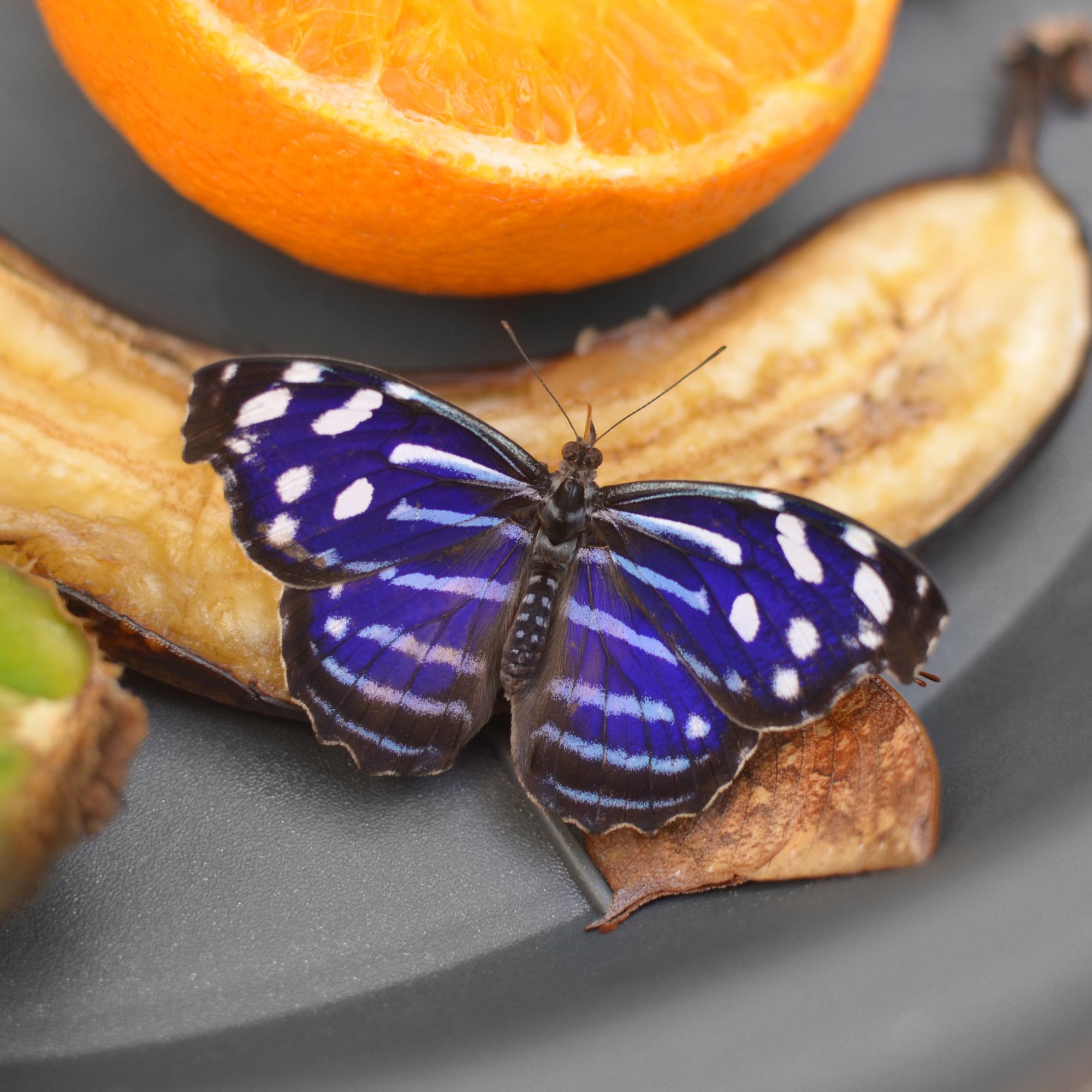
In a world where people are choosing the likes of artificial grass in favour of real lawns and natural areas are being torn down in favour of new-build houses, butterflies are running out of food.
While planting nectar-rich flowers can certainly provide them with the food they’ve been missing, you can also take this one step further by offering them an energy boost. This is particularly helpful during the cooler months when your flowers have been deadheaded, and there are limited resources available to them.
To do this, make a mixture of dissolved sugar and water - similar to how you’d feed weary bees - and either pour it directly into a bird or butterfly feeder bowl or soak a clean cloth with the sugar mixture and then put it in the bowl for the butterflies to enjoy.
If you don’t have any sugar available, you could also place overripe bananas or other fruit in the garden for them to enjoy (ideally up high to discourage ants and other critters).
5. Avoid using harmful garden products
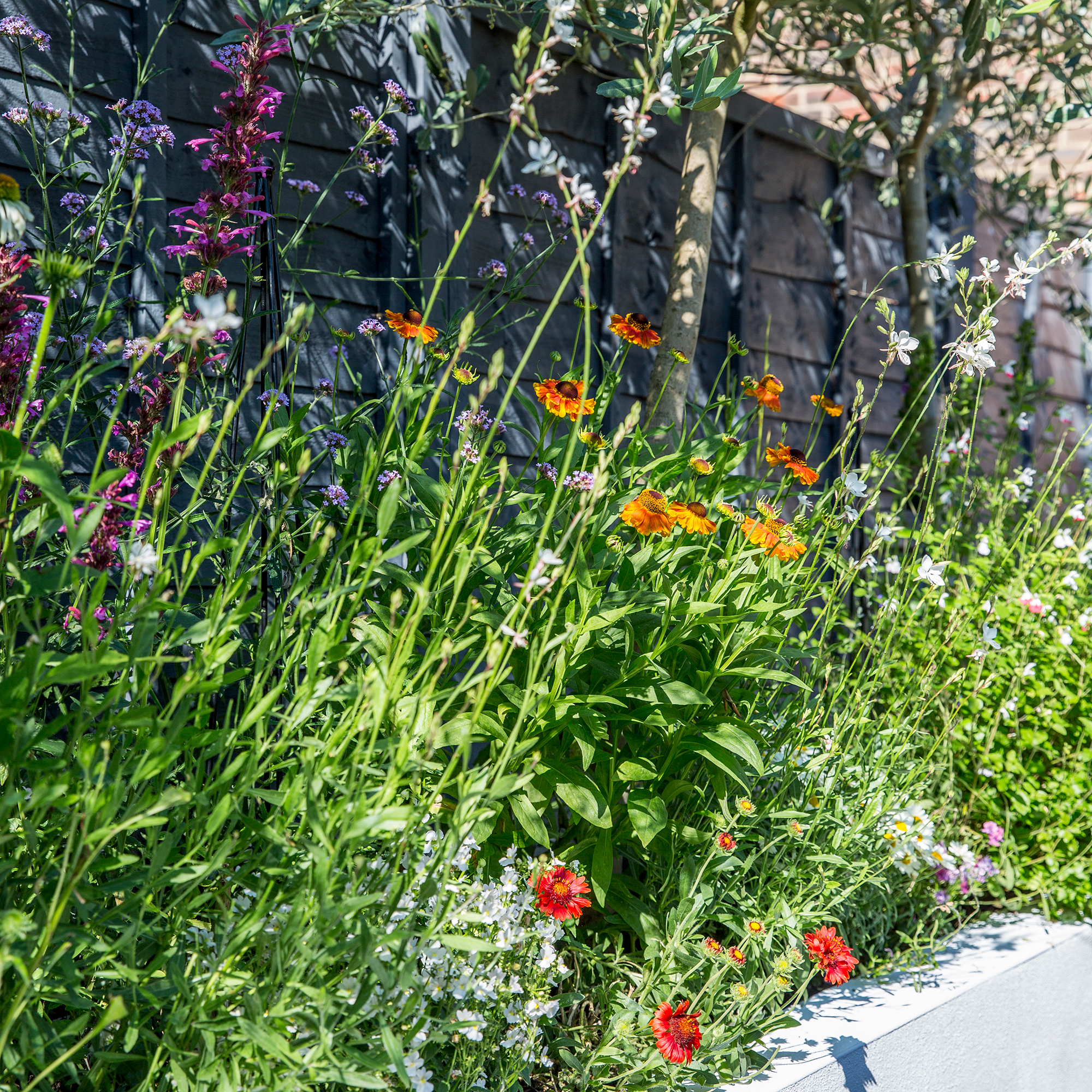
If you want to attract butterflies to your garden, you should aim to make your outside space as natural as possible. To do this, you should avoid using common toxic garden products.
As well as potentially harming wildlife - including butterflies - these products will also disrupt the natural ecosystem in your garden and make it undesirable for future fluttering visitors. And the main products to avoid are chemicals found in the likes of weed killers and slug repellents.
Of course, we understand that you still need to keep your garden in check, which is why you should always opt to get rid of weeds naturally and get rid of slugs naturally.
FAQs
Why don't I have butterflies in my garden?
One of the main reasons why you might not have butterflies in your garden is because butterflies are under threat, and the numbers in the UK are dwindling.
However, it may also be because your garden just isn’t very desirable to butterflies. If you don’t have any nectar-rich flowers or space for them to hide from predators, it’s highly unlikely that they’ll come to your garden.
Because of this, you need to take steps to encourage butterflies and make your garden more desirable for them.
What is the best nectar for butterflies?
Out of all of the nectar-rich flowers out there, butterflies are most attracted to buddleia - which, as a result, is often called the ‘butterfly bush.’ And while butterflies will flock to this beautiful plant, you do have to be careful.
Buddleia is incredibly invasive and can quickly take over a garden. Not only can the roots travel to great lengths, but while invading your garden, they will also overpower other plants that have taken root in your garden space. This can be problematic if the buddleia pushes out native and varied plants that create a vibrant ecosystem.
And while most experts don’t advise planting buddleia in your garden, it’s important to note that you can grow buddleia in a pot. You’ll need to make sure it’s a big pot, though.
So, how will you attract butterflies to your garden?

Lauren Bradbury has been the Content Editor for the House Manual section since January 2025 but worked with the team as a freelancer for a year and a half before that. She graduated with a Bachelor’s degree in English and Creative Writing from the University of Chichester in 2016. Then, she dipped her toe into the world of content writing, primarily focusing on home content. After years of agency work, she decided to take the plunge and become a full-time freelancer for online publications, including Real Homes and Ideal Home, before taking on this permanent role. Now, she spends her days searching for the best decluttering and cleaning hacks and creating handy how-to guides for homeowners and renters alike, as well as testing vacuums as part of her role as the Ideal Home Certified Expert in Training on Vacuums, having spent over 110 hours testing different vacuum models to date!
